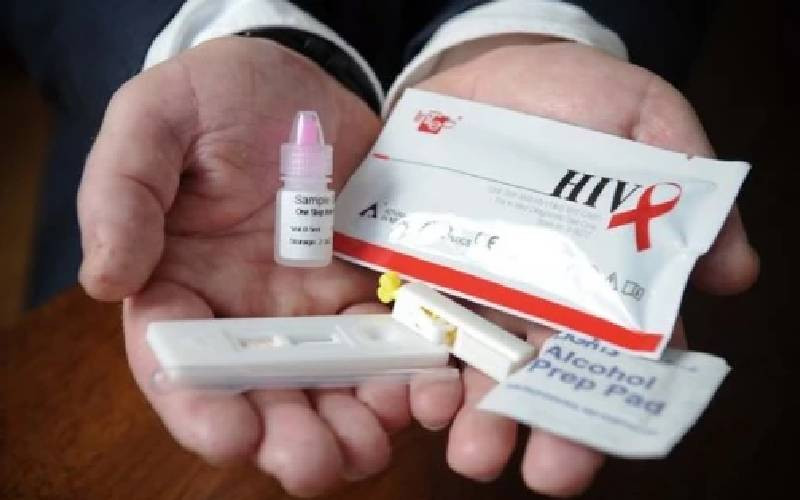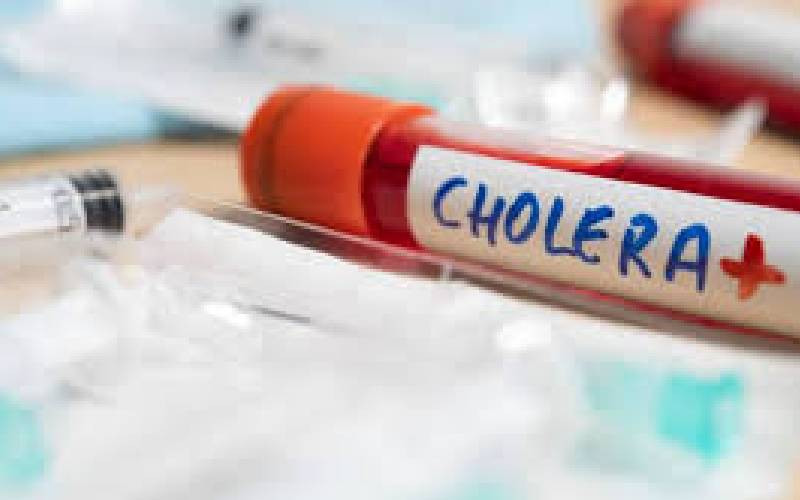A new report is warning of dire consequences due to misuse of drugs in treating common infections and minor injuries.
Health experts are concerned over growing culture of preference for these medicines from the wrong hands for a cheaper price.
The report notes that hawking of antibiotics on streets with a promise of cheap, instant cure, for example, threatens the ‘miracle’ of these powerful medicines that fight bacterial infections.
Kenya Medical Research Institute (Kemri) director of microbiology Sam Kariuki has called for strict regulations to address the prescription and use of antibiotics in the country to avert a crisis where infections will require the more second-line expensive drugs. “Loud whispers of ‘capsule, capsule’ at busy and crowded bus stops are common as peddlers hawk drugs on the street,” warns Dr Kariuki.
He warns that even as antibiotics have been celebrated as one of the pillars allowing people to live longer, be healthier and benefit from modern medicine, vigilance on their prescription, sale and use need to be strictly regulated and surveillance tightened to avert the drug resistance crisis.
On proliferation of unregulated traditional and herbal medicines, Kariuki warned that the preference by most Kenyans to prevent, diagnose and treat illnesses could adversely affect their health as unknown agents in these drugs have not been adequately studied and recommended.
“The agents used to fight diseases in some of these traditional and herbal medicines are frequently mixed into herbal tonics and powders at unknown dosages, and you are subject to antibiotic exposure without knowing,” he said.
According to the report titled ‘Situational Analysis and recommendations on Antibiotic Use and resistance in Kenya’, the country is already experiencing high levels of antibiotics resistance and in most cases it is made worse by the lack of data on the actual rates and most affected.
Report
In the report released by Kemri and the Global Antibiotic Resistance Partnership as the world marked the Antibiotics Awareness Week, health experts fear that these life-saving drugs are losing their effectiveness in treating conditions, fueled by their overuse and under-use.
The Centre for Disease Control says antibiotic resistance occurs when bacteria change (or mutate) in a way that reduces, or even eliminates, the effectiveness of drugs such as antibiotics, chemicals or other agents that could otherwise be counted on to cure or prevent infections.
And with one out of two Kenyans paying for medical services using out-of-pocket expenditure, the report paints a picture of decreased annual antibiotic use in Kenya in the last decade due to high dose prices.
“The numbers may be low because of declining socio-economic status of a substantial proportion of the population as well as the deterioration if the healthcare system and drug supply chain prior to 2002,” read parts of the report.
The study that was jointly done with the Global Antibiotic Resistance Partnership shows growing trend where doctors give antibiotics to patients with conditions that cannot be cured by these drugs, thereby wastes their effectiveness.
Kariuki and the team of researchers now warn that due to prevailing resistance to medicines used to treat malaria, tuberculosis and other conditions, more expensive drugs are required which patients especially from resource-poor settings cannot afford.
“They may fear negative outcomes if they fail to provide antibiotic treatment resulting in a dissatisfied customer and increased health risks if an infection is not addressed,” the report cited.
In a medical advisory article by Dr David M Berma this week, an infectious disease specialist at John Hopkins Hospital, he said the antibiotic resistance is worsening and something needs to be done to stop it.
“All health care providers must strive to prescribe antibiotics for bacterial infections only, and all patients and caregivers need to trust and understand the importance of not always needing to receive an antibiotic,” Berma said.
He called for preventive measures like timely and appropriate hand washing to prevent bacterial infections and added that the most natural way to defend ourselves is by using our own immune response to prevent an infection rather than suffering the disease
According to the report, increased cost of living and soaring hospital health costs prompts patients in Kenya to look for informal drug sellers or get unprescribed medications, a trend that experts warn could fuel an antibiotic resistance. “Staff at retail pharmacies, many of which are unlicensed and poorly managed may recommend the wrong treatment of provide the wrong treatment or incorrect dosage levels,” read excerpts of the report.
The poor state of laboratories and lack of critical tests within public health facilities was cited with most of them lacking access to clean water or electricity, shortage of equipment and supplies and little supervision of these facilities by the concerned hospital administration thus majority perform below capacity.
Patients also avoided going for tests prescribed by the doctor, on grounds that they were quite expensive, took too long, and opted to buy broad-spectrum antibiotics.
“The expense of laboratory services is often paid directly by the patient and when it is beyond their expenses, they decline a culture test that could have provided a profile of the infecting organism,” the report reads in part.
Due to the scarcity of the facilities, where present the testing services take long to process, posing a risk of death for patients with life-threatening diseases, the report notes.
Interestingly, the patients in Kenya were found to prefer certain antibiotics over others and requested for them from their doctors and if denied, obtained them over the counter from pharmacies without prescriptions.
What are antibiotics?
The first true antibiotic, penicillin, was brought forth by Dr Alexander Fleming in 1928, which was used in the treatment of bacterial infections such as, syphilis, gangrene and tuberculosis.
Centuries later, these lifesaving drugs are losing their effectiveness in what health experts attribute to both their overuse and under-use.
In June, ministers of health and other officials from 20 countries met in Netherlands citing resistance to antibiotics that is threatening the ability to practice modern medicine, including treatment of infections, many chronic diseases such as cancer, and the protection of those undergoing surgery.
Retail pharmacies, private health clinics and drug-dispensing small shops have been faulted for failure to operate the required licenses and adhere to prescription protocols set by authorised agencies like the Pharmacy and Poisons Board.
Though the extent of antibiotic use in animals and how it affects animals remains undocumented in Kenya, the report warns.
 The Standard Group Plc is a multi-media organization with investments in media platforms spanning newspaper print
operations, television, radio broadcasting, digital and online services. The Standard Group is recognized as a
leading multi-media house in Kenya with a key influence in matters of national and international interest.
The Standard Group Plc is a multi-media organization with investments in media platforms spanning newspaper print
operations, television, radio broadcasting, digital and online services. The Standard Group is recognized as a
leading multi-media house in Kenya with a key influence in matters of national and international interest.











